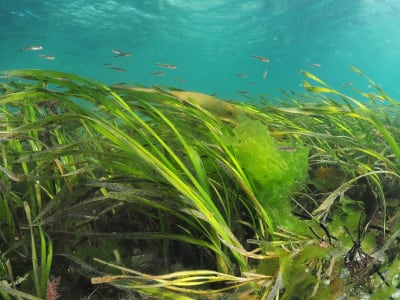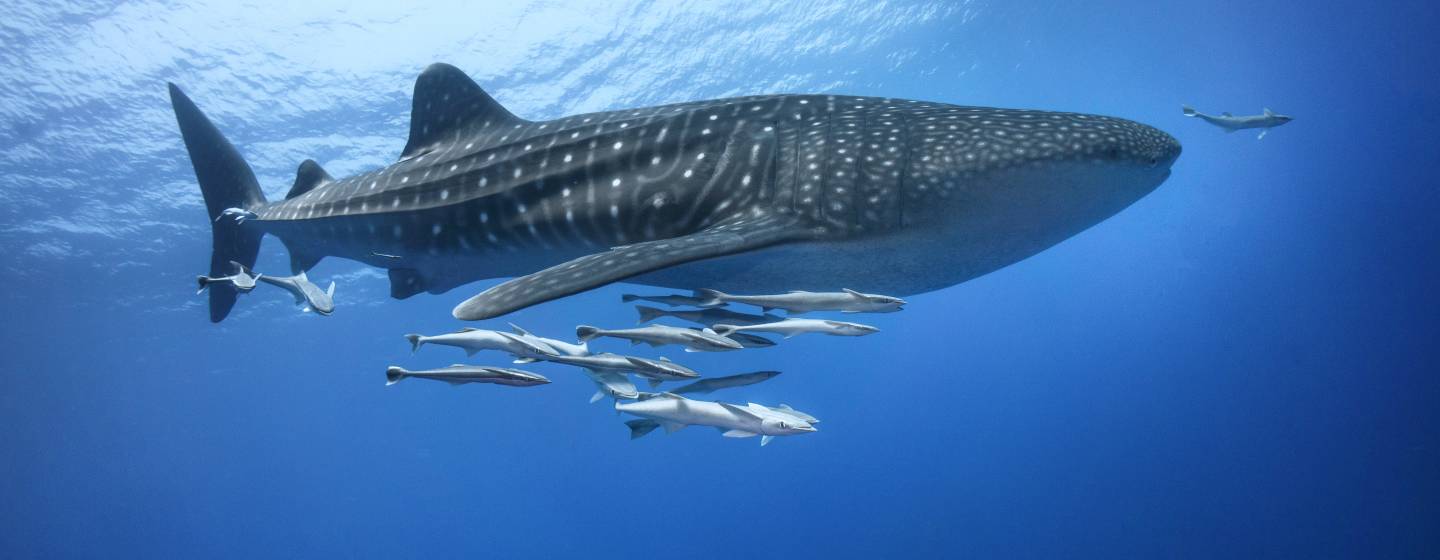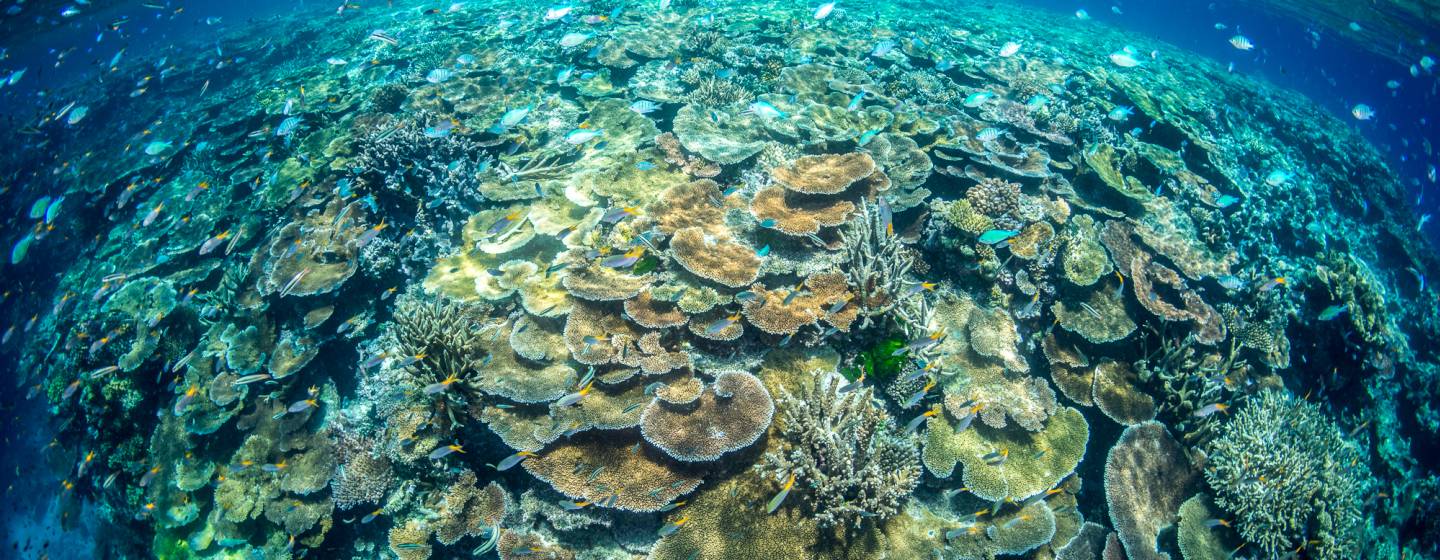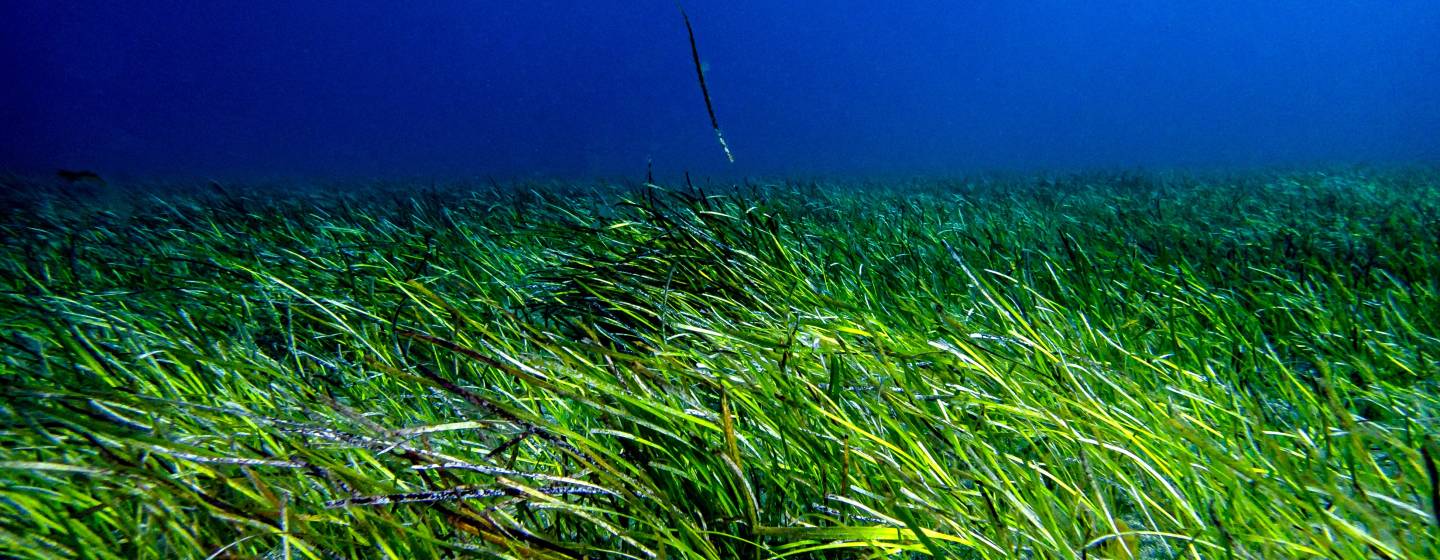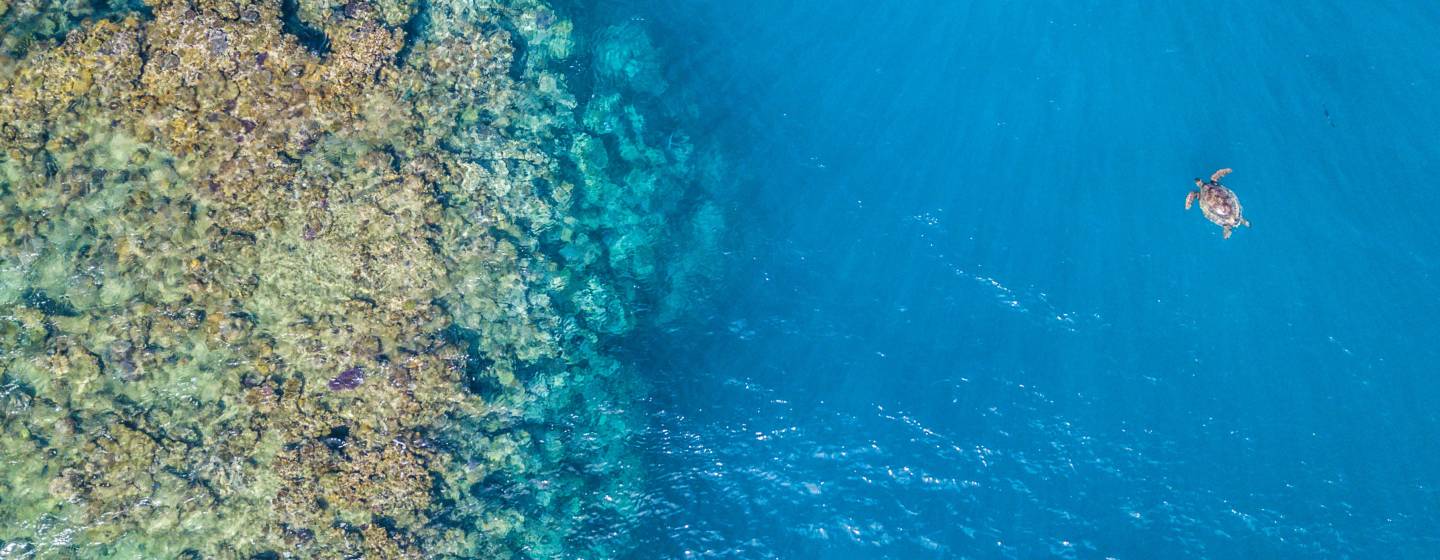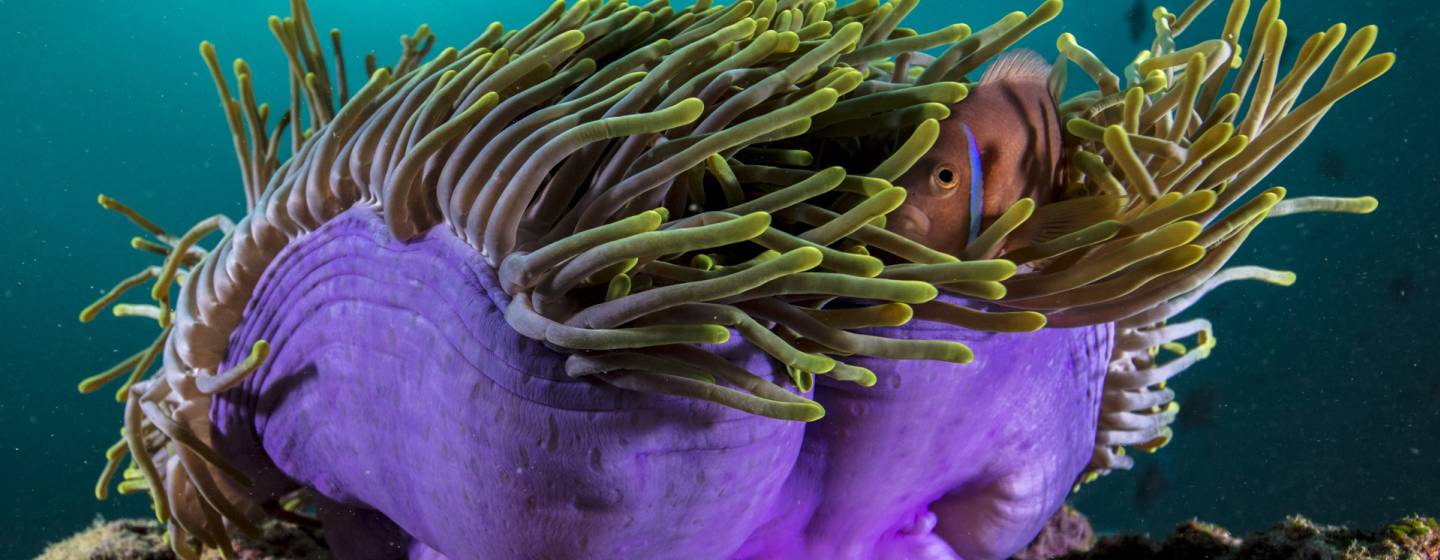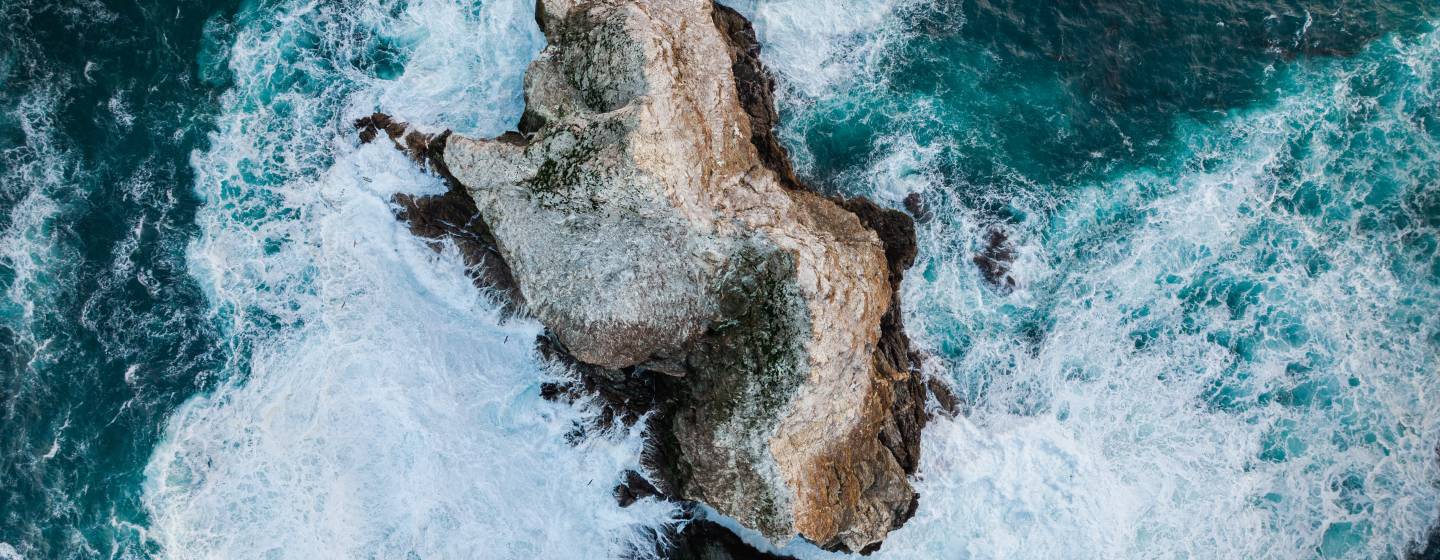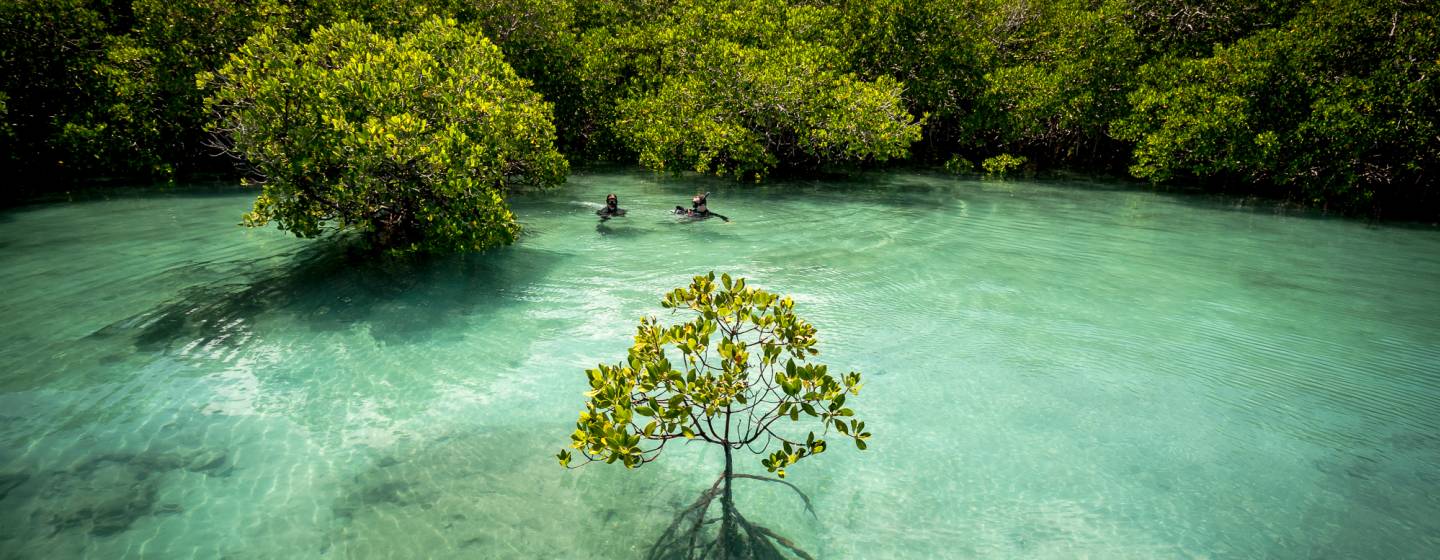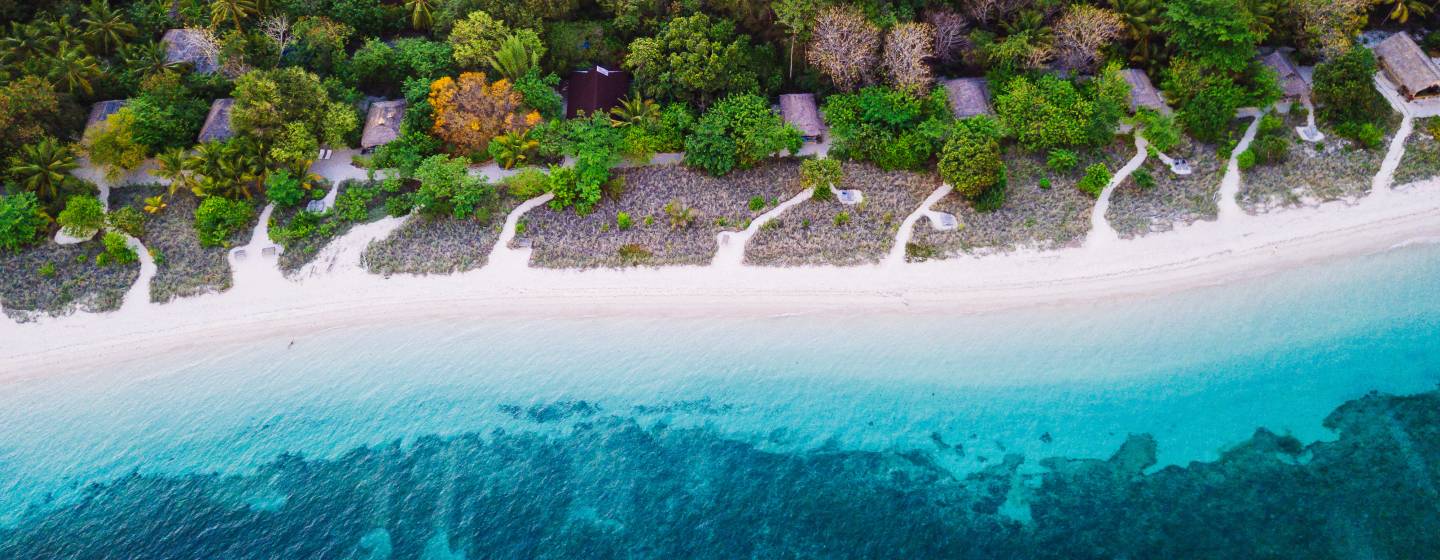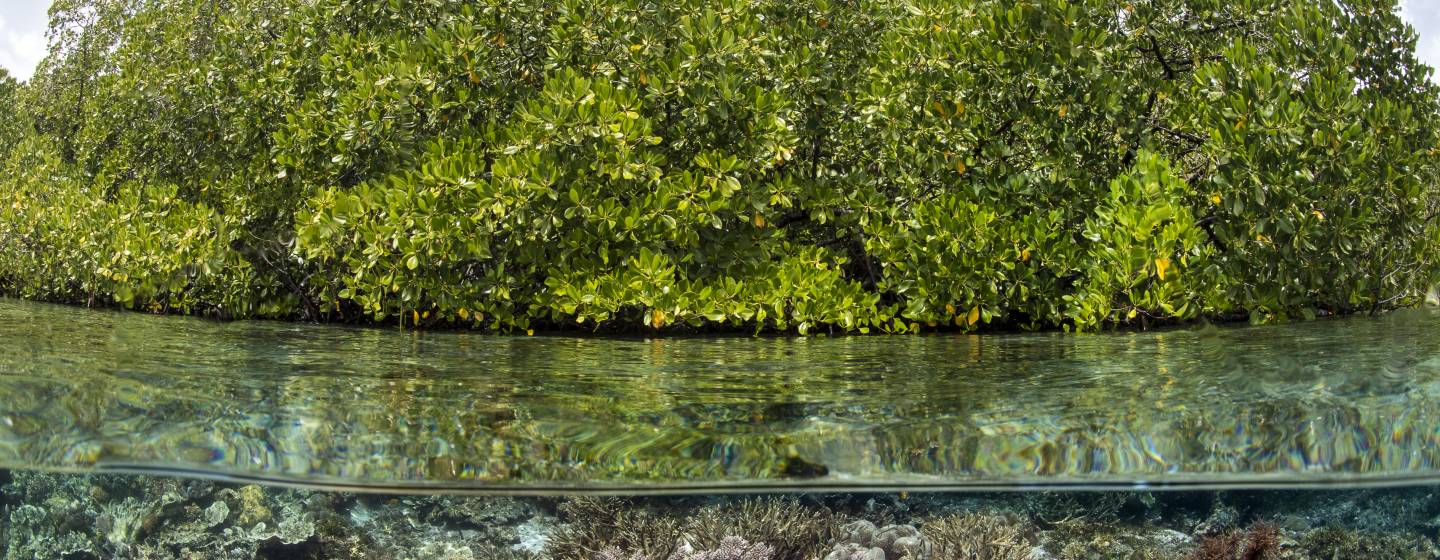Jump to section
As part of our commitment to climate and nature action, we’ve joined our sister companies across the Travelopia Group* to partner with Blue Marine Foundation.
Our objective is to help conserve the stunning coastlines and marine life that enrich your holidays and restore ocean ecosystems that are vital in tackling climate change.
Together with our fellow travel companies, we intend to donate at least £1 million over the next 3 years, with an aim to support the conservation and restoration of 7,000 hectares of vital marine ecosystems through seven global projects.

From the Mediterranean to the Caribbean, Kenya to Indonesia, these protected “blue carbon ecosystems” have the potential to remove and store thousands of tonnes of carbon every year. They will also help protect a rich diversity of coastal and underwater wildlife, including endangered species.
Our support will also enable the training and employment of local communities in marine conservation, helping ensure these beautiful places are preserved for generations.
*Sunsail is a member of the Travelopia group of travel companies which has come together to partner with Blue Marine Foundation.
Who are Blue Marine Foundation?
Blue Marine Foundation is an organisation dedicated to restoring the ocean to health by protecting and restoring marine life. Its mission is to see at least 30 per cent of the world’s ocean under effective protection by 2030 and the other 70 per cent managed in a responsible way.
The ocean is the world’s largest carbon sink. By combatting overfishing, establishing Marine Protected Areas, restoring depleted marine habitats and engaging local communities in marine conservation, Blue Marine seeks to ensure the ocean can continue its vital function of stabilising the Earth’s climate. To date, Blue Marine has contributed to the protection of over four million square kilometres of the ocean. Find out more here.
Credit: Blue Marine Foundation | Ocean Image Bank
Gallery: Cinzia Osele Bismarck, Matt Curnock, Liam McGuire, Tom Vierus, David P Robinson, Cameron Venti, Matt Curnock, Erik Lukas, Alex Mustard
Our Commitment
Together with our fellow travel companies, we intend to donate at least £1 million over the next 3 years, with an aim to support the conservation and restoration of 7,000 hectares of vital marine ecosystems through seven global projects.
The Travelopia Group’s donations will support seven projects that span the globe, including:
- A blue carbon approach to saving Greek seas in Greece
- Restoring blue carbon habitats and protecting unique marine ecosystems in the Caribbean
- Community-led restoration of Indonesia’s extraordinary blue forests in Indonesia
- Restoring abandoned aquaculture ponds to productive mangrove forests in Philippines
- Safeguarding the future of ancient seagrass meadows in Formentera
- Restoring Mida-Creek’s mangrove forests in Kenya
- Restoring mangroves and seagrass for climate mitigation and resilience in the Maldives
How can you get involved?
Beyond this commitment, all additional customer support will further contribute to Blue Marine’s mission to protect 30% of the world’s oceans by 2030. Help us protect our ocean by making a donation.
Add an optional donation of $2 per person to your next Sunsail yacht charter.
Donations go to Blue Marine Foundation and will be used to support various areas of their incredible work. No matter how big or small, all donations are valuable.
Note: across 2024, our customers contributed over £30k which went directly to Blue Marine Foundation, and is funding many of their incredible initiatives.
What work are we supporting?
Our partnership supports seven projects which span the globe, from the Mediterranean to the Caribbean, Kenya to Indonesia. Through a combination of conservation, ecosystem restoration, research and community engagement, each project seeks to address the climate and biodiversity crisis in different ways, empowering and engaging local communities:
Greece’s Posidonia seagrass faces threats from anchoring, pollution and other human interventions. In order to inform the proper protection of vital and ancient seagrass habitat, Blue Marine is working to provide a comprehensive assessment of the carbon removal and storage potential within Posidonia beds. Employing advanced hyperspectral cameras in collaboration with our partners, this project aims to generate advanced data to understand the climate implications of this vibrant ecosystem and enhance knowledge to help secure future climate smart marine protected areas (MPAs) across the Mediterranean.

Project Overview
Greece has experienced significant loss of its Posidonia seagrass due to anchoring, pollution and other human disturbance. Posidonia sequesters significant quantities of CO2 as it grows, protects coastlines from erosion and provides a nursery for juvenile fish. The Greek coastline exceeds 15,000km and is characterised by carbon rich Posidonia seagrass and algal meadows, dropping off into deeper waters where fragile corals feed in the productive water currents. But in the context of the heavily overfished Mediterranean, Greek waters have had one of the highest habitat and biodiversity declines due to human pressures. Blue Marine and its partners are initiating the first no-take marine protected areas in Greece.
In the first year of this project, we will be conducting a baseline assessment of the carbon stocks, carbon sequestration rates and storage of the Posidonia beds within potential marine protected areas. Our goal is to enhance our understanding of Posidonia meadow distribution and coverage through accurate mapping, evaluate their blue carbon potential, and conduct biodiversity surveys and health assessments. This will help us ensure that future protected areas offer sufficient protection to these vital Posidonia meadows.
Local Partners
The Ionian Environment Foundation, The Cyclades Preservation Fund, The Thalassa Foundation, TETHYS Research Institute, iSea and PlanBlue.
A mosaic of rich marine habitats, the Dutch Caribbean is home to an incredible host of marine species, such as hawksbill turtles, colourful parrotfish and sharks. To help protect them, the island of Aruba seeks to introduce a round-island marine protected area (MPA), to restore and protect its mangrove and seagrass habitat and create a “living lab”- a space to demonstrate various restoration practices and teach tourists about the work taking place on the island. On the island of Bonaire, mangrove forests are declining due to erosion. To tackle this, the Mangrove Maniacs, a volunteer group, are successfully re-opening mangrove channels to restore the waterflow which in turn restores oxygen levels and brings back the previously abundant marine life.
Project Overview
Year 1 of this project will concentrate on mangrove restoration and channel excavation in Aruba and Bonaire. Additionally, we will be focusing on seagrass protection across four sites in marine protected areas (MPAs) in Mangel Halto as well as developing signage for these MPAs in Aruba.
The mangrove forest in Lac Bay, Bonaire, is in decline mainly due to siltation caused by erosion. This is causing mangroves to die due to reduced oxygen and increased salinity. Our local partners, the Mangrove Maniacs, are working to open channels to restore the waterflow and so improve conditions for the mangroves and other wildlife. This is important work to allow the mangroves to recover naturally and ensure increased rates of survival for planted seedlings.
Similar work is beginning to take place in Aruba in the Mangel Halto MPA, where work is needed to prevent encroachment and habitat degradation before mangroves can be replanted in the area. In the same MPA, seagrass is being damaged by increased anchoring, and during this pilot phase we will be sectioning off four areas to establish no-trampling zones to give the seagrass a chance to recover. The first year will focus on design, production and placement of signage at four MPAs (12-15 signs in total). This will help raise awareness and ensure the effectiveness of the protection.
Local Partners
Fundacion Park National Aruba (FPNA) and Mangrove Maniacs.
Indonesia, accounting for 20 per cent of the world’s mangrove cover, has witnessed significant loss since the 1980s due to shrimp farming and coastal developments. In collaboration with local NGOs, Blue Marine’s work in Indonesia seeks to restore thousands of hectares of mangrove habitat, including 90 hectares of degraded aquaculture ponds in Lombok Island. Blue Marine will bring specialist technical knowledge to local NGO partners to set up a new project to support the restoration of mangrove ecosystems as well as delivering community education, monitoring and protection. Community members, local government officials, and local NGO representatives will be trained in world-leading community based ecological mangrove restoration techniques by Indonesian NGO, Blue Forests. A detailed engineering design will be developed and followed by a project manager and project coordinator, employing community members in restoration activities. The site will be developed as a mangrove eco-tourism destination centre to provide the community with alternative sustainable livelihoods.
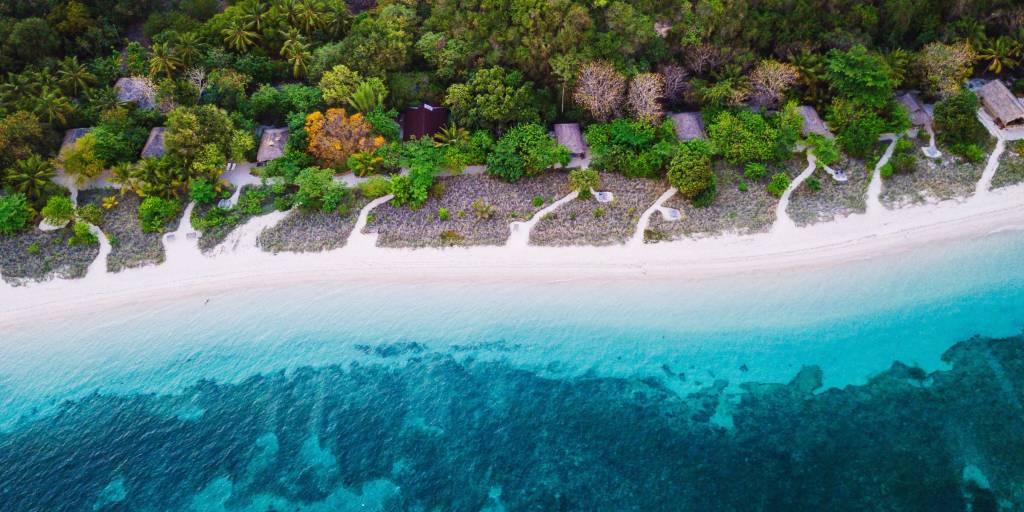
Between 1970 and 2015, the Philippines lost 40 per cent of its mangroves, a vital blue carbon habitat that supports an abundance of species such as mudskippers, grouper, and the ancient horse shore crab (considered ‘living fossils’ as they’ve existed unchanged for over 400 million years). To address this, Blue Marine’s partner, Oceanus Conservation, has undertaken significant work to restore these blue forests, with over 8,000 seedlings planted in previously degraded areas. Their next target is a 10-hectare site in the country’s south, repurposing an abandoned shrimp farming site. By using a method that works with nature, Blue Marine seek to repair water flows and plant trees to stabilize sediment, letting nature oversee most of the restoration.
Formentera’s seagrass meadows are believed to date back over 100,000 years, making them one of the oldest living things on the planet today. Unfortunately, they are under extreme threat from human impact such as pollution and boat disturbance. In collaboration with Blue Marine’s local partners, Blue Marine is working to implement a citizen-driven initiative of “Posidonia Planting”, which seeks to plant a minimum of 3,000 seeds/fragments annually, bridging the gaps in seagrass coverage and fortifying restoration success.
Mida Creek is home to an array of wonderful marine life, including a resident population of Indo-pacific dolphins, providing critical sea turtle habitat and nesting areas and a nursing ground for Humpback Whales. The Mida Creek project was started by Sustainable Surf and COBEC in 2020 during the pandemic, which left many people without work as the local economy relies on tourism. In the Watamu region of Kenya mangrove trees have been illegally harvested for lumber and charcoal production, due to local economic pressures. COBEC works with local villages to replant mangroves in deforested areas. The communities are educated about the environmental and economic importance of these ecosystems, and employed to grow seedlings, collect mangrove propagules, plant mangroves and monitor the growth of the trees.
The marine and coastal environments of the Maldives are essential for its very existence as a low-laying island nation yet are under increasing threat from habitat degradation and rising sea levels. Building on Blue Marine’s extensive experience in the Maldives, this project seeks to understand the historical causes of mangrove loss, to inform both active and natural mangrove restoration over the coming years. Meanwhile, the project will also focus on enhancing tourist engagement and education, local restoration training and furthering seagrass protection across the island’s resorts.
Impact So Far
Since the start of our partnership, in October 2023, a lot has already been achieved through the 7 global blue carbon projects we support.
Latest updates as at January 2025:
Some highlights:
-30 hectares of blue carbon habitat have been restored
-12,500 mangrove trees have been planted
-113 community members have been upskilled and engaged in marine restoration
-Sightings of rare and endangered wildlife in a couple of the project areas.
- Research has been undertaken, to better understand the carbon removal and storage potential of Posidonia seagrass, and a rare sighting of an endangered Mediterranean Monk Seal will help support protection proposals for the area.
- 167 marine species identified off Corfu, 15 of them protected
- 621,000 m2 of seagrass meadows and five distinct marine habitats mapped
Blue carbon and protecting sea life in Greece
Greece’s coastline is home to ancient Posidonia seagrass meadows, vital for the habitat they provide to many species as well as the role they play in carbon removal and storage. However, these meadows are currently under intense pressure from anchoring, pollution and overfishing.
So this project aims to use innovative technology to map these meadows, assess the biodiversity they promote, and evidence their role in carbon sequestration, in order to pursue designation of ‘no take’ marine protected areas.
Travelopia’s support has so far enabled the comprehensive mapping of 621,000m2 of seagrass meadows and the collection of 10 blue carbon samples. In addition, biodiversity studies have highlighted the presence of 167 different species in the project area, just off Corfu. 15 of these species are considered endangered, including the dolphin, turtle and the critically endangered Mediterranean monk seal, thereby helping prove the importance of protecting these critical ecosystems and allowing them to re-flourish.
- 500 red and black mangroves have been planted, and weekly volunteer sessions engaged local communities in preparing mangrove restoration channels.
- Propagation of ‘native plant nursery’ of mangrove species, ready for planting out later in year
- Mangrove channel restoration underway
- 25 hectares are under ecological restoration and 45 local community members trained in restoring mangroves.
- 27 hectares earmarked for habitat restoration
- 45 local community members trained in mangrove restoration
Community empowerment through blue forests in Indonesia
Indonesia is home to 20% of the world’s mangroves, but has witnessed significant loss since the 1980s due to shrimp farming and coastal developments. The project we support is focussed on mangrove restoration in a way which supports community livelihoods as well as increasing biodiversity. Our partnership has already supported the training of 45 community members in blue carbon ecosystem restoration, and will support employment opportunities over time, through the development of the site into a mangrove ecotourism hub, providing a sustainable income to the wider community.
A key aspect of this project’s first phase is therefore to engage the local community so that they can help design this new future. Forum group discussions have been promoting open dialogue between the project team, landowners and community members, to jointly plan the transformation of their land from degraded shrimp ponds back to thriving mangrove forests.
A representative of Indonesia’s Ministry of Marine Affairs and Fisheries attended the opening day of the community training, and has stated this project provides a model which could be scaled across Indonesia, meaning significant potential increase of the project’s community impact.
- A new mangrove nursery has been created, 48 members of the local community have been engaged in activities and an agreement has been signed with the local government in support of the project.
- 8,000 mangrove saplings potted for planting out this Spring
- 3,406 Posidonia plants have been planted on rocky substrate, this pioneering pilot showing success so far through strong seedling survival rates.
- Seagrass restoration plan developed for one of the world’s oldest ecosystems
- Pioneering trial underway, to plant 300 seagrass seedlings on rocky surfaces
- 1.2 hectares of mangrove forest has been restored in Mida Creek, including the planting of 12,000 mangroves trees, and a ‘Not Yet Identified’ crab species was discovered at one of the planting sites.
- 12,000 mangroves planted in Mida Creek
- Critical mangrove loss research has been completed, to assist development of national restoration projects, and a seagrass education module developed for schools and resorts.
- Critical mangrove loss research undertaken, to assist development of national restoration projects
The Sea We Breathe
Enjoy the interactive experience on The Sea We Breath platform.
Interact with the different journeys here. Enjoy a short demo video below.
Proud Members of the Blue Marine Yacht Club
We are proud to be members of the Blue Marine Yacht Club (BMYC), a collective of ocean advocates committed to protecting and restoring the world’s oceans for future generations. BMYC brings together influential supporters from across the yachting community to promote sustainable practices and support marine conservation. As members, we are dedicated to playing an active role in safeguarding the marine environment and helping shape a healthier future for our oceans.
Step Aboard Here
Start your experience with Sunsail on land and sign up to receive e-mails from us about yachts, offers and destinations.
By clicking 'Sign up' you confirm that you have read and understood our Privacy Policy and consent to our use of your information.
